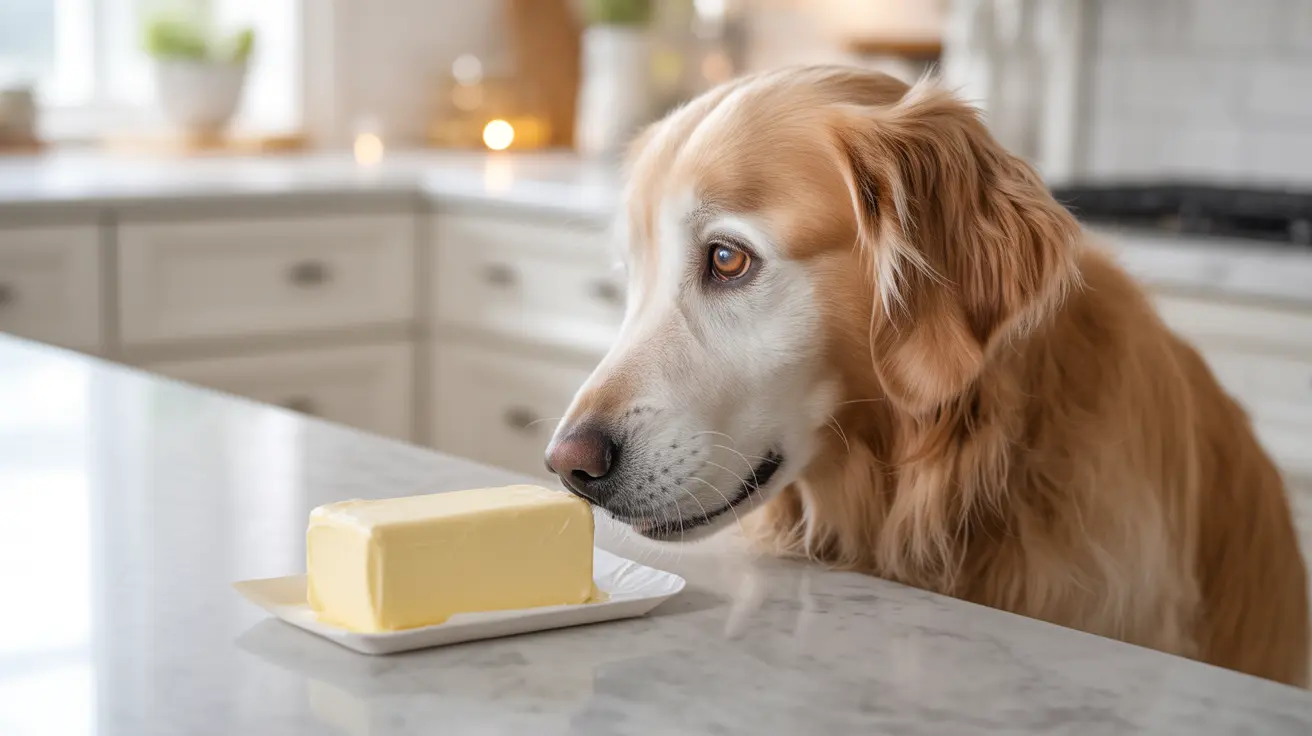Many dog owners wonder about sharing human foods with their pets, and butter is a common concern. If you've ever caught your furry friend eyeing that stick of butter on the counter, you might be wondering about its safety. This comprehensive guide will explore whether butter is good for dogs and what risks it may pose to your canine companion.
While butter isn't toxic to dogs, it's important to understand that it's far from being a healthy addition to your pet's diet. Let's dive into the details of why butter should be kept away from your four-legged friend and what you should do if they happen to consume it.
Understanding Butter's Impact on Dog Health
Butter consists of approximately 80% fat, primarily saturated fat, offering virtually no nutritional benefits for dogs. Unlike some human foods that can be safely shared with pets, butter provides no essential proteins, vitamins, or minerals that would contribute to your dog's health.
The high fat content in butter can lead to several immediate and long-term health issues in dogs, making it an unnecessary risk to their wellbeing.
Immediate Effects of Butter Consumption
When dogs consume butter, they may experience several immediate effects:
- Digestive upset and diarrhea
- Vomiting
- Stomach discomfort
- Gas and bloating
- Lethargy
Long-term Health Risks
Regular exposure to butter can lead to more serious health conditions:
- Obesity and weight management issues
- Pancreatitis (inflammation of the pancreas)
- Chronic digestive problems
- Increased risk of heart disease
- Joint problems due to excess weight
What to Do If Your Dog Eats Butter
If your dog manages to sneak some butter, don't panic immediately. The severity of the situation depends on several factors, including the amount consumed, your dog's size, and their overall health condition.
Steps to Take:
- Assess the amount consumed
- Monitor your dog for unusual symptoms
- Ensure fresh water is available
- Contact your veterinarian if concerning symptoms develop
Safe Alternatives to Butter
Instead of butter, consider these healthy treats for your dog:
- Small pieces of lean, cooked meat
- Fresh vegetables like carrots or green beans
- Commercial dog treats designed for training
- Plain, low-fat yogurt (in moderation)
- Small pieces of apple (without seeds)
Frequently Asked Questions
Is butter good for dogs?
No, butter is not good for dogs. It provides no nutritional benefits and is high in fat, which can lead to various health problems including obesity and pancreatitis. While not toxic, butter should be avoided in your dog's diet.
What happens if my dog eats too much butter?
If a dog consumes too much butter, they may experience digestive issues like vomiting and diarrhea. In more serious cases, it can lead to pancreatitis, which requires immediate veterinary attention. Symptoms of pancreatitis include severe abdominal pain, repeated vomiting, and lethargy.
Can I use butter as a treat for my dog or are there better alternatives?
You should not use butter as a treat for your dog. Better alternatives include small pieces of lean meat, commercial dog treats, or healthy vegetables like carrots. These options provide nutritional benefits without the risks associated with butter.
How can I prevent my dog from accidentally eating butter?
Store butter in sealed containers in the refrigerator or in cabinets out of your dog's reach. Never leave butter unattended on countertops or tables where your dog might access it. Clean up any butter spills immediately.
What are the signs of pancreatitis in dogs if they consume butter, and when should I contact a vet?
Signs of pancreatitis include severe abdominal pain, repeated vomiting, hunched posture, fever, and diarrhea. Contact your veterinarian immediately if you notice these symptoms, especially after butter consumption, as pancreatitis can be life-threatening if left untreated.
Conclusion
While butter isn't toxic to dogs, it's clear that it offers no benefits and poses several health risks. The best approach is to keep butter and other high-fat foods away from your furry friend and stick to dog-appropriate treats and their regular diet. If you're ever uncertain about what foods are safe for your dog, consult with your veterinarian for professional guidance.






